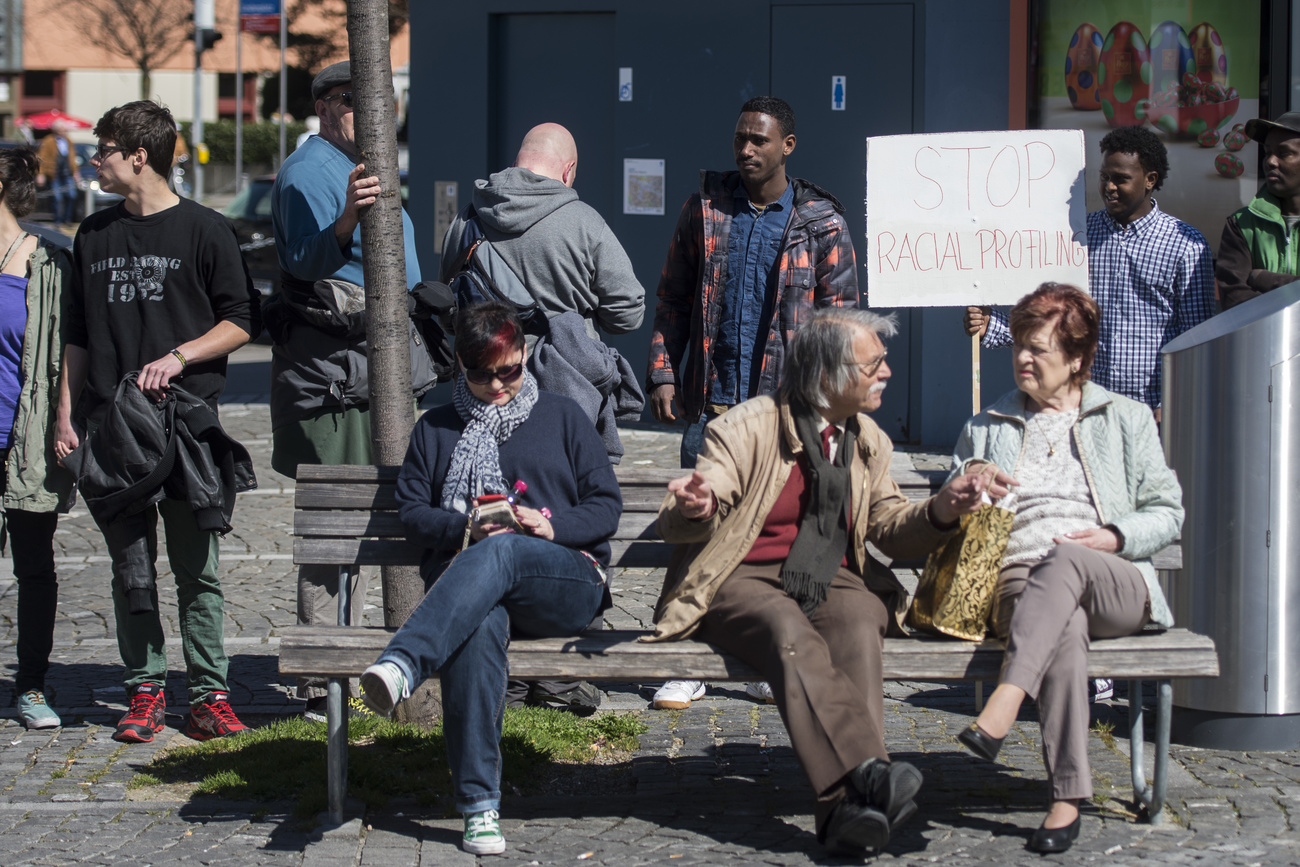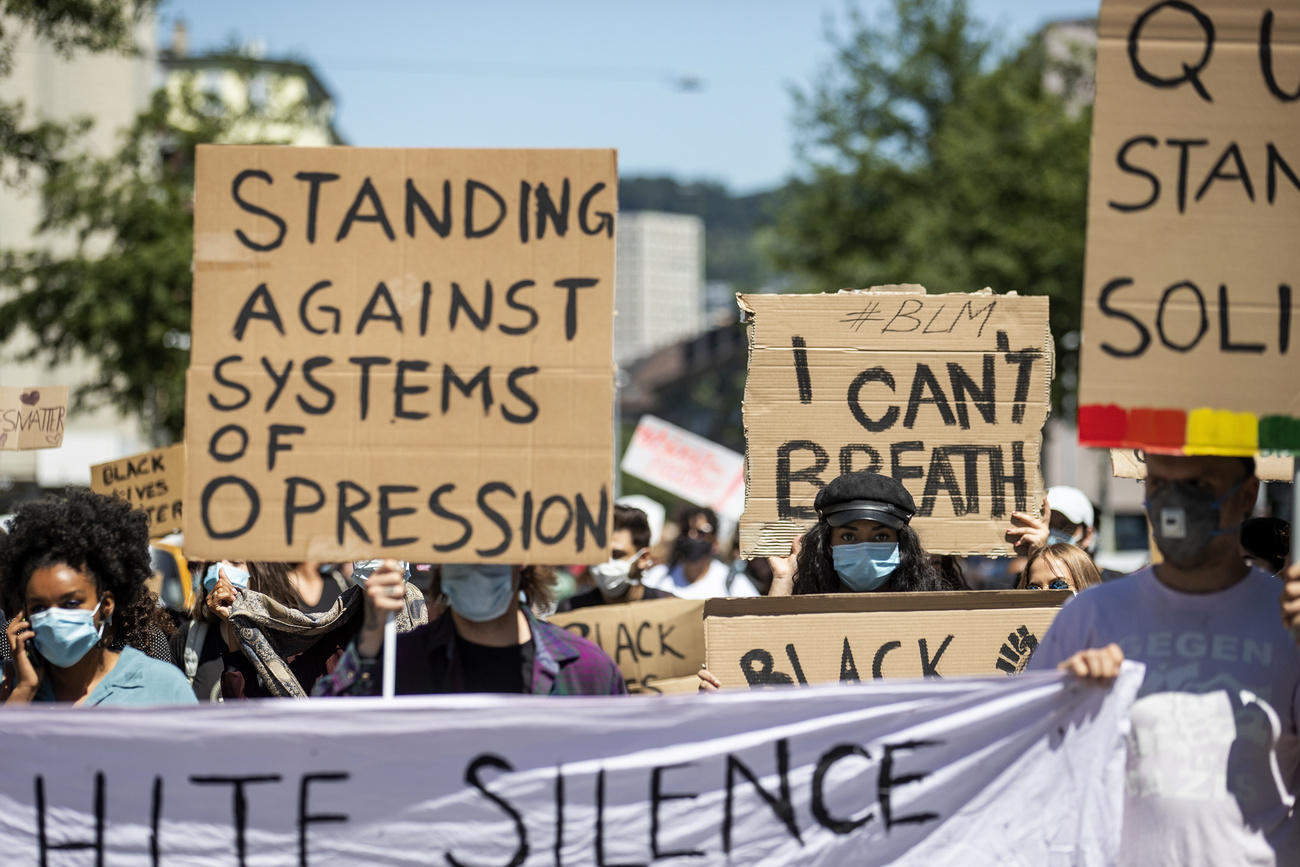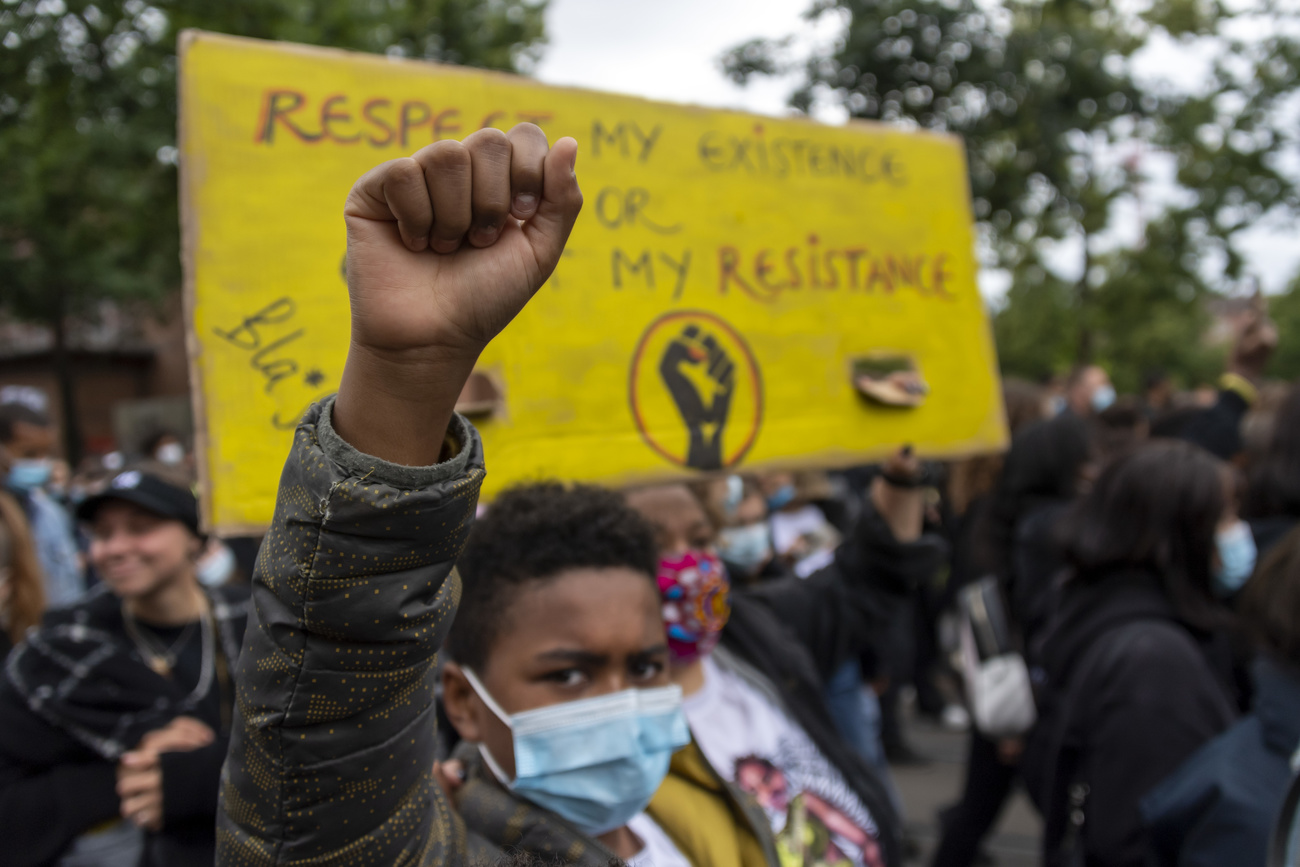Racism in Switzerland: are we taking it seriously enough?

Last year, more racist incidents were reported in Switzerland than ever before. According to the Federal Commission against Racism, 327 of the 876 reported cases in 2023 were based on anti-Black racism. Are we doing enough to fight racism? Read on to find out more about this issue and join the debate on "dialogue".
According to the most recent racism report compiled by the Federal Commission against Racism in collaboration with the organisation Human Rights and the Racism Advisory Network, 876 cases of racism were reported last year in Switzerland. This is 24% more than in 2022.
There has been a significant increase in cases of anti-Arab racism (69 reports), Islamophobia (62 reports) and anti-Semitism (46 reports). However, these figures are well below the number of cases of anti-Black racism (327 reported cases).
What is your opinion on racism in Switzerland? Join the multilingual debate on our “dialogue” platform. The editorial team of “dialogue” moderates and translates the content into the four Swiss national languages and English.
Racism on the football field
The fight against racism in football is a global issue. The Spanish club Atletico Madrid have been given a partial stadium closure order by the Spanish Football Federation after supporters racially abused Athletic Bilbao player Nico Williams last Saturday.
However, racism also occurs in lower leagues, on football pitches near you. Last April, for example, the goalkeeper of FC Saxon, a club in canton Valais in southern Switzerland, was racially abused during a match.
“I was going to get the ball from the side [of the pitch]. That’s when I saw a fan staring at me. He then started making monkey noises and calling me a ‘dirty Black’”, the goalkeeper told French-speaking Swiss public television, RTS.
The FC Saxon team decided to take a stance and all the players left the pitch. Three weeks after the incident, RTS visited the team (watch the video clip below).
Racial profiling judgement against Switzerland
Only recently, the European Court of Human Rights (ECHR) in Strasbourg condemned Switzerland for racial profiling. This is the first time that the court has categorised a specific police control as discriminatory.
Racial profiling is when police conduct targeted checks on people just because of their skin colour.
A United Nations expert who was interviewed by SWI swissinfo.ch explains how she encountered a “culture of denial” when she identified racial profiling by the Swiss police.
Read the full article on the racial profiling judgement against Switzerland here:

More
Racial profiling judgement against Switzerland: ‘a hopeful moment’
Raising awareness in the classroom
What can be done to fight racism and discrimination? The organisation “Narrazioni contaminate” [Contaminated narratives] is convinced that actual change begins in the classroom. Italian-speaking Swiss public television, RSI, wanted to find out how the organisation raises awareness among schoolchildren.
The roots lie in colonialism
However, in order to fight racism, it is important to know its origins. Switzerland’s “colonial history” is a factor here. Although Switzerland had no colonies of its own, it does have historical ties with the colonies of other countries. As a result, the moral concepts that emerged during colonialism also spread in Switzerland, says historian Ashkira DarmanExternal link in an interview with German-speaking Swiss public television, SRF:
“It would have been nice if racism had disappeared along with the colonies,” says Darman. But the ideology has remained. That’s why it’s important to deal with the history and origins of racism.
This is the only way to fight racism in today’s society, she says. Racism is not about “individual hypersensitivity” but a problem that affects society as a whole, says Darman.
Compare yourself!
Our online tool below provides an insight into how society thinks about this topic. You can use it to compare yourself with other respondents on various questions about racism:

In compliance with the JTI standards
More: SWI swissinfo.ch certified by the Journalism Trust Initiative






You can find an overview of ongoing debates with our journalists here . Please join us!
If you want to start a conversation about a topic raised in this article or want to report factual errors, email us at english@swissinfo.ch.